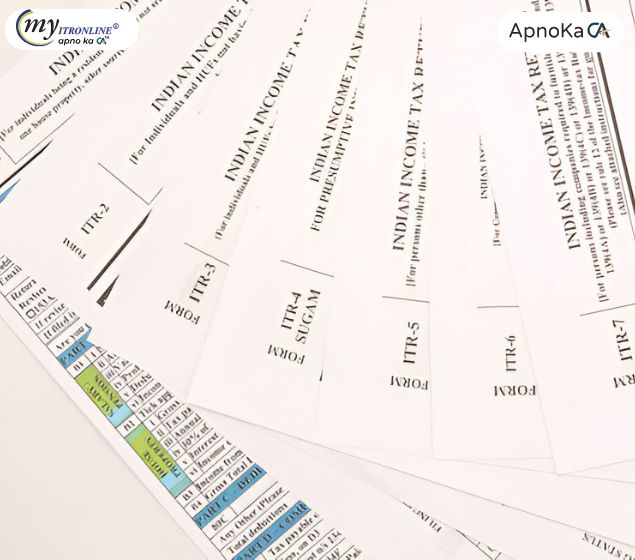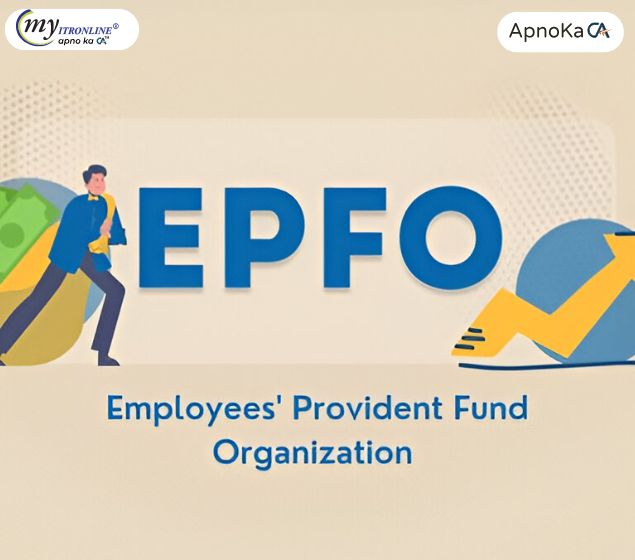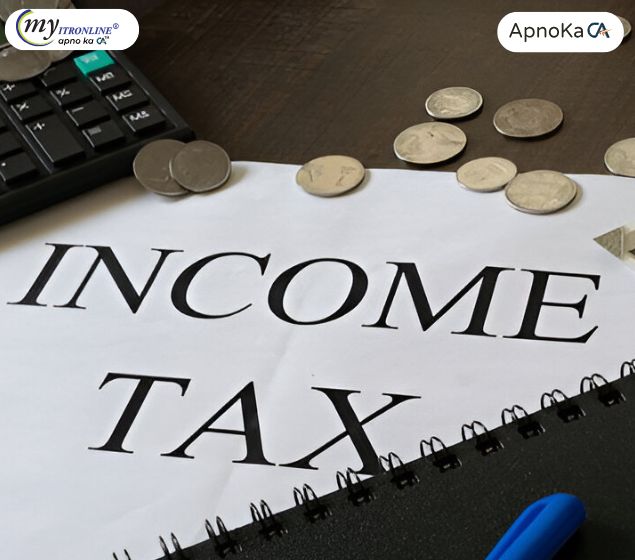# forms
12 posts in `forms` tag

Understanding ITR Forms (ITR-1 to ITR-7) for AY 2025-26: Selecting the Appropriate Form for Your Earnings
This blog post serves as a comprehensive guide to selecting the correct Income Tax Return (ITR) form (ITR-1 to ITR-7) for Assessment Year 2025-26 (Financial Year 2024-25). It begins by emphasizing the importance of choosing the right form to avoid penalties and highlights the extended filing deadline for individuals and HUFs. The post then details important updates for AY 2025-26, including changes to LTCG reporting in ITR-1/4, compulsory detailed disclosures for old regime deductions, new TDS section requirements, revised asset reporting thresholds, and the default new tax regime. A simplified overview of applicability and exclusions for each ITR form (ITR-1 to ITR-7) is provided. Finally, it uses seven practical case studies to illustrate how different taxpayer profiles (salaried, freelancers, businesses, firms, companies, trusts) can correctly identify their applicable ITR form. The synopsis concludes by advising readers to consult official guidelines and tax professionals for accurate filing.

EPFO’s New Rules in 2025: 4 Game-Changing Updates
In 2025, EPFO rolled out 4 major reforms to modernize and simplify the Provident Fund system. These include a digital joint declaration system, simplified profile updates, auto PF transfers, and centralized pension payments. Learn how these changes benefit both employees and pensioners.

Tax Alerts: 9 Essential Updates to ITR-1, ITR-2, ITR-3, ITR-4 for FY 2024-25
The Income Tax Department has notified updated ITR forms (ITR-1, ITR-2, ITR-3, ITR-4) for FY 2024-25 (AY 2025-26) incorporating several crucial changes. This blog details 9 important adjustments, including relaxed eligibility for ITR-1/ITR-4, mandatory TDS section reporting, removal of Aadhaar Enrolment ID acceptance, detailed disclosures for tax regime options, bifurcated capital gains reporting, new treatment for buyback proceeds, raised asset reporting threshold, additional requirement for disability deductions, and streamlined capital gains sections, all aimed at ensuring accurate and compliant tax filing.

CBDT Notifies ITR Forms 1-7 for AY 2025-26 (FY 2024-25): What Taxpayers Need to Know
The CBDT has notified the ITR forms (1-7) for AY 2025-26, incorporating changes from the Finance Act, 2024. This blog provides a comprehensive overview of the key modifications in each form, focusing on changes in capital gains reporting, eligibility criteria, deduction disclosures, and other compliance requirements to help taxpayers prepare for the upcoming filing season.
.jpg)
Finance Bill 2025 Update: Big Relief for Taxpayers on Income Tax Search Rules
The Indian government has updated the Finance Bill 2025, substituting "total income" with "total undisclosed income" in important sections of the Income Tax Act. This amendment lowers the liabilities for taxpayers, encourages compliance, and simplifies assessments in instances of search and requisition.
.jpg)
In order to draft new rules and forms for the 2025 income tax bill, CBDT is seeking input from stakeholders.
The CBDT is seeking stakeholder input as it drafts new Income Tax Rules and Forms for the Income Tax Bill, 2025. This blog discusses the relevance of the consultation, main emphasis areas, and how stakeholders may help build a more efficient tax system.
.jpg)
Tax Reforms for LLPs & Partnership Firms: What’s Changing in April 2025?
With effect from April 1, 2025, the Finance Act implements major income tax reforms for partnership enterprises and limited liability companies in India. This article examines the changes that are expected, their possible effects, and practical measures that companies may take to ensure a seamless transition.
.jpg)
TDS & TCS Compliance Alert: What’s Changing from April 1, 2025?
The Union Budget 2025 makes substantial revisions to TDS and TCS laws, which will take effect on April 1, 2025. This blog gives a thorough discussion of the significant changes, their ramifications for various taxpayers, and practical ways to assure compliance. Stay informed and avoid fines with anything from reduced TDS rates to new crypto transaction restrictions.TDS revisions 2025, TCS regulations 2025, new tax rules 2025, TDS on cryptocurrency, TCS on international remittances, tax compliance 2025, ITR filing 2025, TDS on salary, and TDS for freelancers
.jpg)
TDS Thresholds and Rationalization: What It Means for Your Cash Flow
This blog examines TDS rationalization in India, its effects on liquidity, and the advantages it offers to professionals, companies, and people. It discusses current developments, difficulties, and tax planning techniques for the 2025–2026 fiscal year.
.jpg)
Key Updates on Presumptive Taxation in the Income Tax Bill 2025
Small enterprises, professionals, and independent contractors would all be impacted by the substantial changes to presumptive taxation brought about by the Income Tax Bill 2025, especially under Section 58. Important adjustments include clarifications on deductible costs, conformity with tax simplification objectives, and limitations on loss set-offs. This blog examines the ramifications of these modifications, how they affect taxpayers, and practical measures for financial planning and compliance.

Section 80C Removed in 2025: New Rules and How to Stay Tax-Efficient
To make tax compliance easier, the government has eliminated Section 80C from the Income Tax Bill 2025 and merged it with Section 123. This blog examines the ramifications of this change, its effect on taxpayers, and how to adapt financial planning strategies in response.
.jpg)
Highlights of the New Income Tax Bill 2025: Key Changes and Comparison to the 1961 Act
With its streamlined tax rules, updated tax slabs, AI-powered tax administration, and improved compliance procedures, the New Income Tax Bill 2025 is poised to completely transform India's tax structure. This blog examines the main modifications, contrasts them with the Income Tax Act of 1961, and talks about how they affect investors, companies, and taxpayers.
